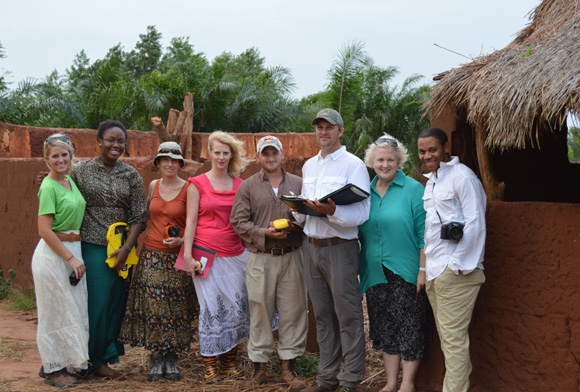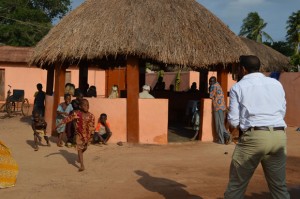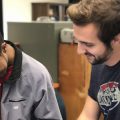 When members of the University of Mississippi chapter of Engineers Without Borders visited Togo last August, their work to help improve the infrastructure of the impoverished African nation was filmed by UM journalism faculty and students. Their endeavors are the subject of a documentary being entered in competitions, available for public viewing and possibly a television broadcast.
When members of the University of Mississippi chapter of Engineers Without Borders visited Togo last August, their work to help improve the infrastructure of the impoverished African nation was filmed by UM journalism faculty and students. Their endeavors are the subject of a documentary being entered in competitions, available for public viewing and possibly a television broadcast.
“Togo: Engineering for Change” is a 28-minute film focused on the EWB’s trip. Faculty members in UM’s Meek School of Journalism and New Media have begun the process of submitting the documentary to Mississippi Public Broadcasting for its consideration.
“We are now looking for ways to give the documentary a wider audience,” said Nancy Dupont, associate professor of journalism. “The bottom line is that we hope the documentary will generate interest and financial support for the EWB’s continuing project in Togo.”
Norman Seawright III, a senior broadcast journalism major from Greenville, Ind., narrated the film and contributed some of the video. Dupont wrote, produced and primarily photographed the piece, which was edited by Bradley Schultz, associate professor of journalism.
Seawright’s work has been aired on NewsWatch, the UM student newscast, as well as in public exhibitions and online. The documentary has been posted on the Meek School of Journalism and New Media website since December.
 Working with EWB on the Togo project has been a transformative experience for Dupont and Seawright.
Working with EWB on the Togo project has been a transformative experience for Dupont and Seawright.
“Norman and I both agree: Togo is now in our souls,” Dupont said. “These projects are among the best things we’ve done in our professional lives, and we have a new appreciation for all of the things engineers know how to do to make all of our lives better.”
Engineering staff members said they are pleased to have EWB as the subject of the documentary.
“This was an excellent, engaging, complementary and well-suited collaborative effort between two professional schools,” said Marni Kendricks, associate dean of the School of Engineering and a faculty adviser for EWB. “We are very pleased with the outcome and are hopeful that we can continue working together.”
The next phase of the project will present even more opportunity for journalism as EWB starts the construction of a school building.
“The Phase I trip in August 2012 was ‘assessment only’ (no real brick and mortar to film), but the documentary theme was created in such an interesting manner, somewhat like a professional reality show,” Kendricks said. “Nancy and Norman worked very hard to capture the thought process of the team, even the stress we were feeling as we represented the full EWB Ole Miss chapter tasked with the job of finding the right project on the international scene.”
The team members knew the project would have to meet with EWB national approval and be manageable for the local group, Kendricks said.
“We knew we only had a few days to make the determination of the project,” she said. “And we knew that Togo was much too far and expensive of a trip to come home empty-handed if we could possibly avoid a failure. The journalists with us were right in the middle of our meetings with cameras rolling, where we were obviously sorting out a lot of possibilities and problems under pressure.”
Dupont expressed hopes for future EWB collaborations as well.
“We wholeheartedly believed in the endeavors of the Ole Miss chapter of Engineers Without Borders,” she said. “We were in hopes that the engineers’ expertise would translate into help for people who truly need support for their developing nation.”
Watch the documentary
Donate to Engineers Without Borders
